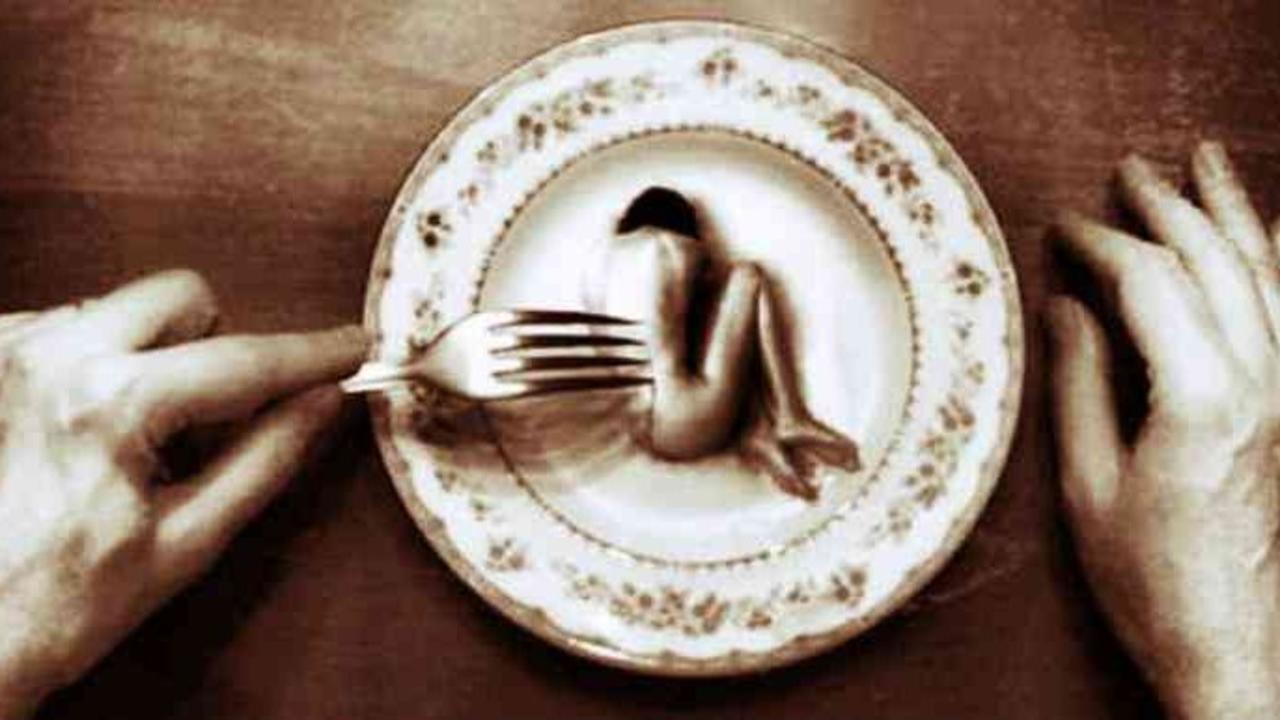If The Man You Love Has These 4 Personality Traits, He's A Genuine Keeper

Do not let this man go!
Do you have a list of the qualities and characteristics you’d to find like in a man? Many women (and men) do.
However, most lists of this kind are based on personal dating preferences, so they don't necessarily take into account the specific personality traits that really matter when it in comes to determining whether or not a guy has what it takes to form happy, healthy bonds as a boyfriend or husband....
People With These 3 Personality Traits Are The Most Likely To Be High-Functioning Sociopaths

Proceed with serious caution.
We've all had the experience of meeting someone who seems to be "off" somehow, but in a way it's extremely difficult to put a finger on.
Dating and falling in love with a person whose personality traits turn out to be so truly twisted as to raise suspicions that they might have antisocial personality disorder will leave your self-esteem and ability to trust deeply damaged, possibly even causing you to doubt your own perceptions of reality....
Is Your Partner Treating You Like A Piece Of Meat? 5 Ways To Tell

Where is the line between healthy attraction and objectification? Know the warning signs now!
A new study shows that objectification can be linked to sexual coercion in romantic relationships. This is not surprising, for several reasons. More alarmingly, objectification is also statistically linked to sexual violence. This is also not surprising. So how do you tell the difference between objectification and healthy attraction? What are the warning signs that you would want to watch out for in a relationship or when getting to know someone? Obviously we would all like to enjoy healthy attraction and be able to separate it from unhealthy objectification with many risk factors....
Diagnose Your Relationship Anxiety

Diagnose Your Relationship Anxiety
Most people with anxiety are keenly aware that certain relationships can either reduce or drastically increase anxiety, but do you know why? Most people react from their gut, either withdrawing or frantically seeking a relationship; both often spiral into dysfunctional patterns. With some discernment, you can learn to use anxiety as a diagnostic clue to help you navigate relationships, increase healthy connections, and leave dysfunctional ones....
Should I Stay or Should I Go? Anxiety in Relationships

Most people with anxiety are keenly aware that certain relationships can either reduce or drastically increase anxiety, but do you know why? Most people react from their gut, either withdrawing or frantically seeking a relationship; both often spiral into dysfunctional patterns. With some discernment, you can learn to use anxiety as a diagnostic clue to help you navigate relationships, increase healthy connections, and leave dysfunctional ones.
If you have not heard of Attachment Theory, it is the scientific map of how we bond with others to increase our chances of survival! As mammals, we quite literally depend on emotional bonds with others to survive. Scientific studies have continued to underscore that the warmth and quality of our connections is the number one factor predictive of our life quality, longevity, and is even a huge factor in financial stability.
The one principle you need to understand first is that our need for closeness in relationship is innate, natural, a...
What is Depth Therapy
Welcome to Depth Therapy, the place to Re-Wire Your Relationships for success. When we get to the heart of your heart with the penetrating understanding of Depth Therapy, you will transform your history into a depth of understanding and skill that empowers you to create the relational life you need.
Do you know what is Depth Therapy, and how can it serve you? Depth Therapy is the research-based knowledge necessary to succeed in relationships. Depth therapy is a term to describe therapy based on the notion that our minds are made up largely of unconscious and subconscious parts. If your mind is like a triangle, scientists estimate that the conscious part takes up a tiny portion of about 5-7% at the top of the triangle! This is why many intelligent, educated thoughtful people get stuck making changes in their lives. There are many, many challenges we’ve all worked through on our own, without the help of a therapist or psychologist. When people come to me, it is typically because ther...
Shame: The Ultimate Toxin

Therapist on the whole help people expand their capacity to have feelings. We bear and traverse grief. We contain and enjoy excitement. We hold and learn from sadness, or longing. We contain and console fear. Therapy does not help you to avoid emotion, nor does it magically evacuate tough feelings, but rather helps you to grow into a mature adult who can bear a full range of human emotion. When we bear emotions, they do dissipate, and we also learn to regulate them and/or chose healthy actions that naturally alter what we are feeling. This capacity leads to a depth of life satisfaction, a wealth of empathy and relational capacity, and resilience through life’s ups and downs. I cannot speak enough for the usefulness of a full emotional capacity.
Shame, however, is not an affect that we should learn to bear. Shame is a toxic state of mind that inhibits almost all real emotional growth, presence of mind, and relational capacity. I think of shame like a cancer. If grief and excitement and...
What is Depth Therapy?: How Cognitive Neuroscience and Attachment Theory Teach Therapy
The language of Attachment Theory has become somewhat common parlance in today's mainstream world. You have likely heard of "attachment styles" and have some idea of how your early bonds shape your style of attaching and bonding in early life.
Attachment Theory began with a British scientist named John Bowly in the 1960's, who noticed that humans behave in a manner driven by a biological need to bond with their caregivers. This was a revolutionary notion at the time and caused him to be ostracized by the field of psychoanalysis, which at the time was governed by the notion that humans were motivated by internal fantasies, needs and desires. What is so exciting today is that this one-time dichotomy is now understood as a unified whole.
Object Relations is the fancy medical terminology which describes how our interpersonal relationships become encoded in our internal world, which is why our early relationships have such an enormously influential role shaping our identity, beliefs, need...


